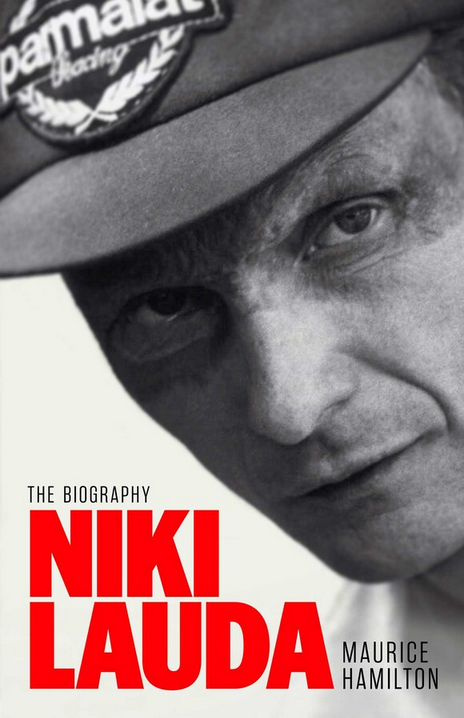 Reviewed by Kieron Fennelly
Reviewed by Kieron Fennelly
Title: Niki Lauda
Author: Maurice Hamilton
Published by: Simon & Schuster
372 pages; hardback
ISBN: 978-1-4711-9201-2
Price: £20
To most Formula 1 fans Niki Lauda was a three-time world champion who famously survived an accident so horrifying that a priest administered the last rites. Yet as this book shows, there was much more to Niki Lauda. His singular determination not to yield to the grim reaper demonstrated a strength of character which would see him win two more championships, establish and run an airline and yet remain a pivotal figure in motor racing for the rest of his life.
Veteran F1 journalist Maurice Hamilton absorbingly recounts Lauda’s racing career until the Austrian’s retirement in 1985 and then the book moves up a gear as it tells the story of Lauda Air, the trials and tribulations of fighting off the jealous state carrier Austrian Air and Lauda’s single-handed quest to ascertain whether the crash of one of his 767s was his airline’s fault or Boeing’s. When the latter finally admitted responsibility, Lauda’s reputation as a man of integrity was complete and his forthright but considered views became respected to the point where companies as diverse as Ford, Ferrari and Mercedes would seek his counsel.
And Lauda was exceptional: With almost any other individual such self-belief would have seemed intolerable arrogance, but his meticulousness alone could sometimes justify this: Lauda hated sloppiness in any form.
The author quotes Autocar writer Peter Windsor, accompanying Lauda (who usually piloted his own planes) when the pair were passengers on another airline. Lauda could see through the cockpit door and deplored the fact that the plane was not taking off up the centre of the runway, that the crew had not seen that the port engine had failed to reach operating temperature and that as they came into land in very poor conditions the pilot attempted to balance the aircraft by transferring fuel rather than concentrating fully on a potentially tricky landing. Indeed, the flying aspects provide some of the most enthralling passages in this extraordinarily readable and informative biography.
The author’s style is to portray is his subjects largely through the views of people who knew and worked with them. Though not entirely successful with his 2015 biography of Prost, with Lauda this technique works perfectly and his character comes compellingly and convincingly to life thanks to variety of opinion and breadth of context that Hamilton has been able to encompass.
VERDICT
The author says he had no intention of writing about Lauda, but then the outpouring of tributes and emotion that his death (in May 2019) occasioned caused him to reflect that such an exceptional life deserved to be recorded. He concludes: “I was clearly not alone in admiring (Lauda) enormously.” Indeed not: Maurice Hamilton’s fine work will surely create many more admirers.